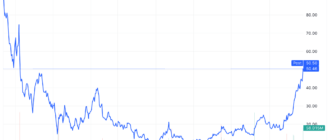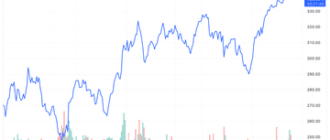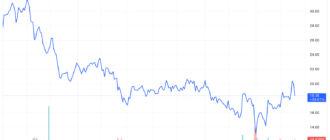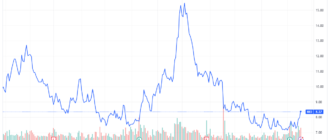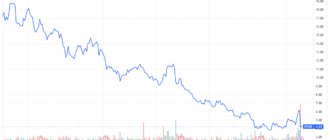
A seller of second-hand clothes in a stall in the market of Nyamirambo, 8 June 2018 in Kigali, Rwanda (Photo Jacques NKINZINGABO. AFP)
In Rwanda, the markets in which the stack of second-hand clothing from the United States are at the heart of a trade war of which the sellers complain that it deprives them of their livelihood.
Decided to strengthen its textile industry, Rwanda has increased in 2016, the import duties on second-hand clothes, upsetting a sector worth millions of dollars and creating tensions with the United States.
Celestin Twagirayezu, 33 years old, and Mercelle Dusabe, 35 years old, have started ten years ago to sell secondhand clothes on the stalls adjacent to the popular market of Nyabugogo in Kigali.
Very soon, the business became successful, allowing the two friends to buy their home, and get married.
Until the Rwanda decided to multiply by 12 the customs duty for the import of old clothes and by 10 those shoes used. For traders to income, suddenly very diminished, this spectacular increase is equivalent to a prohibition.
“This decision has taken everyone by surprise. At the beginning, it was made with our stock of clothes, but after a few months it was back to reality and the things were then gone from bad to worse,” says Celestin, saying it was close to “throwing in the towel”.
The East Africa imports about 1/8th of the clothes that are already used in the world, and this industry employs 355.000 people, representing 230 million (195 million euros) in revenue per year, according to a study by the u.s. agency for international aid (USAid).
The major part of the recycled clothing comes from the United States, and for the region’s leaders, including president Paul Kagame, this market constitutes an obstacle to the development of the textile industry local.
While Celestin has seen her commerce perish, Mercelle turned to the imports of new clothing of chinese origin. But the business didn’t work any better for him either.
– Infant industry –
“You can’t imagine how many customers I have lost by switching to the sale of clothing chinese! Lots of people continue to come and ask for used clothes, and when they do not find, they do not come back,” he says.
Celestin shares this opinion, believing that customers prefer the used clothes to the chinese imports, due to a lower cost and of better quality.
Initially, the countries of East Africa were united in the fight against this market opportunity.
But the alliance was cracked when Kenya, Tanzania and Uganda have backed down from the fear of being sanctioned by Washington in the framework of Agoa (African Growth and Opportunity Act), a trade agreement set up in 2000 to facilitate and regulate trade between the United States and Africa.
Only Rwanda has refused to capitulate and in 2016, when Kigali decided to augmener the customs duties for the imports of second-hand clothes, these have fallen by one-third.
As a result, the american president Donald Trump has threatened in march to suspend within 60 days of the commercial advantages enjoyed by the clothing imported from Rwanda.
The deadline has been passed without any sanction to be adopted. But with a president Trump making war on all concessions of this kind, Rwanda is likely to be called to order one day or the other.
The clothing industry is still emerging in Rwanda and concerns only a few rare companies, which are not necessarily the rwandan.
One of the losers of this trade war is the chinese manufacturer, C&H, which was installed in the special economic zone of Kigali, in order to benefit from the Agoa and exports all of its production in rwanda outside of this small country of the Great Lakes region.
– The china threat –
Many of his american clients have frozen their orders in the meantime an agreement can be found on the Agoa. “We have lost markets in the United States because of the situation with the Bill,” admits a manager of C&H, Emmy Iraguha.
The activities of rwanda, of the chinese company generate a revenue of $ 154 million per year. C&H has not yet yielded to the pressure of the rwandan government, who asked him to produce garments for the local market in order to fill the shortage of clothes.
The company is a rwandan Uterxwa, specializing in industrial workwear and uniforms, seen in the rise in import duties rwandan clothing opportunity a “positive step”.
“When there will be more clothing companies are local, the products will be competitive not only in Rwanda but also in neighboring countries,” said its director, Ritesh Patel, in reference to the challenge of producing clothing at a price attractive enough for the domestic market.
“The alternatives to the second-hand clothes are very expensive,” notes Kevin Uwamahoro, a driver of a motorcycle-taxi who goes to the shops in Uganda, where the market opportunity remains prosperous.
The big winners in this trade war between David and Goliath, despite the present reluctance of customers with respect to them, could be the chinese companies based in China, whose products very good market should replace the second-hand clothes and stifle the local market.
“The massive imports of chinese dress, legitimate or not declared, constitute the real threat to the textile industry is african,” observes the USAid.


